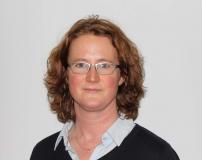


The Frontiers for the Future Awards strand allocates funding of almost €2 million to two separate projects led by researchers in the Department of Biology, Dr Fiona Walsh and Dr Karen English, while a further seven MU projects will receive approximately €2.9 million across a range of disciplines.
Dr Walsh’s research focuses on the internal workings of bacteria that cause disease in humans and are found in agriculture and the environment. The research aims to understand how antibiotic resistant genes work to prevent the antibiotics from killing bacteria. This information will then be used to help design new targets, or places in bacteria, for new drug treatment.
Research led by Dr Karen English will focus on a cell-based therapy called mesenchymal stromal cells. This cell based therapy is currently under investigation in clinical trials to treat patients suffering from acute respiratory distress syndrome (ARDS). This therapy works by calming the immune system and encouraging repair in distressed lungs. The research seeks to understand why some patients in respiratory distress respond while others do not, and will focus on developing ways to enhance the cell therapy so that more patients can benefit.
The SFI Frontiers for the Future programme supports innovative and novel approaches to research, with funding available for both high-risk, high-reward research and larger scale research programmes with the potential to deliver economic and societal impact.
Minister for Further and Higher Education, Research, Innovation and Science, Simon Harris, TD, said: “Congratulations to all the researchers who have received funding today as part of the SFI Frontiers for the Future Programme. I am delighted to support this programme which funds individual-led research, with an emphasis on fundamental research at the cutting edge of science and engineering which will help us build a better future for Ireland through discovery, innovation, and impact.
“Not only will these grants support research in important areas for Irish society, they will also fund 216 people in varying research positions across 10 Higher Education Institutes to further develop their research careers. We are investing in talent. I would like to offer my thanks to the Higher Education Institutions for their support in delivering this programme again this year.”
The Maynooth University ‘Awards’ recipients are:
- Dr Fiona Walsh – ‘Targeting antimicrobial resistance plasmids to resurrect antimicrobial therapies’
- Dr Karen English – ‘Removing the brake; Role of PPAR on mesenchymal stromal cell therapeutic efficacy in ARDS’ (in collaboration with John Laffey, at NUI Galway).
The Maynooth University ‘Projects’ recipients are:
- Dr Niamh Cahill – ‘Predicting Sea Levels and Sea-Level Extremes for Ireland’
- Professor Carmel Breslin and Dr Eithne Dempsey – ‘The fabrication of conducting 2D layered graphene-like materials and their applications as environmental sensors and as electro-catalysts for electro-Fenton: Improved sensing and removal of emerging pollutants from water’
- Professor Damien Woods – ‘Active DNA tiles for programmable nucleation of robust DNA nanostructures’
- Dr Rosemary Monahan and Professor Barak Pearlmutter – ‘MAIVV: Modular AI Verification and Visualisation’
- Dr Emmanuelle Graciet – ‘Future-proofing our crops by increasing their resilience to flooding (hypoxia) and pathogens’
- Dr Elisa Fadda – ‘GlycoShape: A database/toolbox for structural glycomics and glycoanalytics’
- Dr John Dooley – ‘ORCHESTRA 6G: Orchestrating Arrays for 6G’
